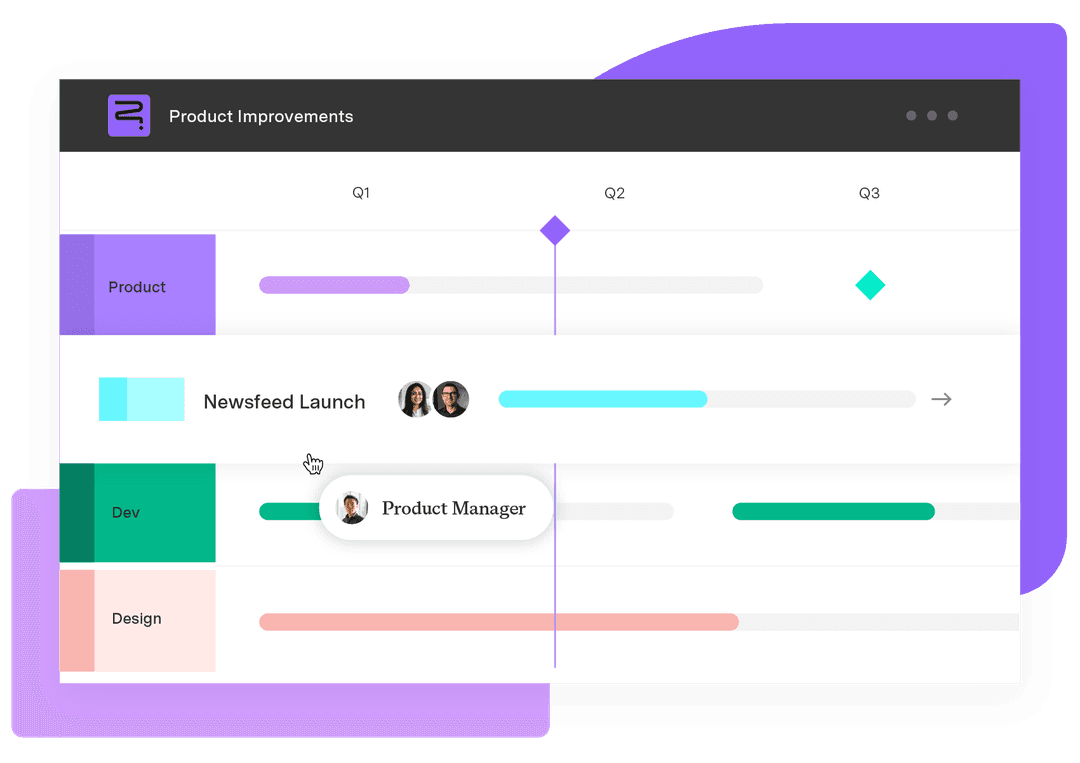How to master the decision-making process
Tempo Team
From the everyday to the game-changing, your choices ultimately make or break a project’s success.
In other words, strong decision-making is what makes initiatives tick. So whether you're a seasoned project manager or just starting out, learning this skill isn't just important – it's essential for steering your projects in the right direction.
To make the best possible choices, you need structure. That’s where a decision-making process comes in. Let’s delve into the most effective decision-making strategies and learn to navigate projects confidently and quickly.
What’s a decision-making process?
A decision-making process is a structured approach to choice. In project management and beyond, it involves gathering relevant information, evaluating alternative paths, and ultimately arriving at an informed decision. This process empowers you to make the best possible choice among the available options, often involving input from collaborators and stakeholders.
Refining this process helps you develop a plan to deal with the complicated challenges that may arise during a project’s lifespan, steering you toward effective decision-making and successful project outcomes. Strong decision-making also leads to:
Efficient team management
Comprehensive project planning
Clear understanding of tasks and objectives
Understanding 3 decision-making models
Decision-making processes in management are often complex — and knowing where to start can be one of the biggest hurdles you'll face. Fortunately, you can simplify the kick-off by choosing from three popular decision-making models based on your project’s needs.
Of course, business decision-making isn't that cut-and-dried. Often, you'll require a mix of the three models to make the most informed and beneficial decisions. Let’s explore each:
1. Rational decision-making model
The rational model is a go-to for managers when choices must yield the most logical and efficient outcomes. Based on an analytical and sequential approach, this model encourages a pros-and-cons analysis where data and statistics take center stage.
This model is best suited for situations where decisions carry a significant impact and objective analysis is essential. Following a step-by-step process, decision-makers can assess alternatives and make information-driven choices.
2. Creative decision-making model
Like the rational model, creative decision-making uses data collection as the basis for the decision. However, instead of being purely methodical, managers view the decision from an outside-the-box perspective, allowing what-if scenarios and imagination to take precedence.
This model is particularly useful when facing complex problems that require innovative thinking, when conventional solutions have been exhausted, or when exploring new opportunities. However, it's important to strike a balance between creativity and practicality to ensure that the chosen solution is feasible and effective in the real world.
3. Intuitive decision-making model
Sometimes facts and figures only capture part of the picture. Seasoned managers might have to rely on their experience, business savvy, or gut instinct to make a correct decision — especially when time is of the essence.
This model acknowledges that sometimes we can quickly process information and arrive at a decision that feels right, even without consciously considering all the data. But while it's a valuable tool, it's important to remember that relying solely on intuition can lead to cognitive biases and subjectivity, so a balanced approach that combines intuition with data-driven analysis is usually best.
8-step decision-making process
Charting a difficult decision-making journey? Here's your compass: an 8-step process to guide you toward confident and impactful choices. Combine any of the models above with this procedure to navigate a difficult decision with a clear and informed perspective:
1. Identify the issue
Before approaching a decision, clearly identify the problem or opportunity at hand. Understand how it fits into your company's big picture and know the resources, budget, and time you have available to tackle it. Be sure to involve other stakeholders and contributors in this process and ensure everyone is on the same page.
This step is crucial, as it sets the foundation for the entire process — so don’t gloss over it.
2. Collect and organize all relevant information
Next, seek out and assemble all information relevant to the issue. Identify how any decision may affect your company's mission statement, bottom line, or team dynamics. And don't forget to tap into past experiences and external sources like competitor outcomes and market research to inform the process.
Once you've collected all relevant information, consider paring it down to just the essentials, as too much data may overcomplicate the process. A lean and focused data set makes for efficient decision-making.
3. Weigh the alternatives
Now that you have all the information, it’s time to map out your options. What are the possible choices, and how might they impact the company?
Create a list of alternatives, and consider the pros and cons of each option in relation to the issue at hand. If one potential route is blocked, look for detours and new perspectives that could reshape your decision's impact.
4. Assemble your team
As a manager, you want to assemble together a team that best complements the decision-making process and task completion. Handpick members based on their experience, expertise, and forward-thinking outlook. A variety of smart perspectives can unlock successful choices and clear any hurdles.
5. Know your timeframe
Time is both your ally and adversary. Thoroughly consider every decision's urgency, as bigger decisions may need more brewing time, while simpler ones can take the fast track. If your project has a strict deadline, plan accordingly. If not, set a timeframe yourself — you don’t want to procrastinate a choice simply because you can.
A time-tracking tool is an effective way to visualize and organize progress. Create a template for you and your team to follow based on projected timeframes.
6. Establish your approach
With all the relevant information in hand, select the best decision-making model for your scenario. Rational, creative, or intuitive — pick the path that makes the most sense. And if it feels right, blend models for a nuanced approach.
7. Take action
Once your decision has been finalized and approved, it's time to put a project management plan in place so you and your team can start working toward the final outcome of your choice. Monitor progress, be ready to adjust if needed, and keep your team’s motivation and momentum alive.
8. Review the outcome
Once your team has enacted the decision, look back with honesty at your journey. Did it lead to the desired outcome? Why or why not? Regardless of success, assess what went well and what could have gone better and use these insights to inform future decisions.
Make better choices with Tempo
Smart choices are paramount to your company's success. They drive efficiency and profitability while expanding your business’s knowledge and credibility.
Just as important, however, is keeping track of your decisions in a way that’s easily shareable and promotes accountability. Roadmaps are excellent tools for the decision-making process as they support operational planning by smoothing alignment, improving strategic organization, and centralizing team planning. Check out Strategic Roadmaps and Time Reporting in Jira to manage your projects, formulate key decisions, and keep tabs on all of your business needs.











































